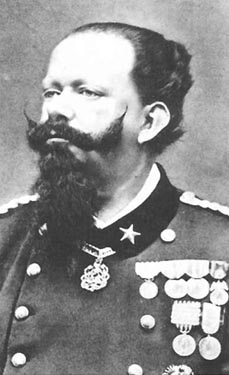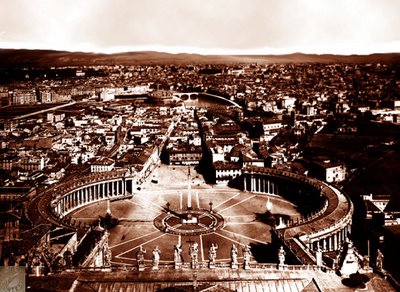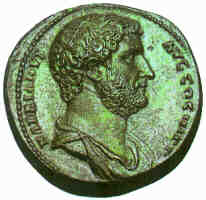PINOCCHIO
by Carlo Collodi (Lorenzini) 1881
READ (IN ITALIAN AND IN ENGLISH) AND LISTEN IN ITALIAN
Something about PINOCCHIO
FISRST IN ENGLISH... THEN IN ITALIAN
Once upon a time, there was ... 'A king!' my little readers will say right away. No, children, you are wrong. Once upon a time there was a piece of wood....
The Adventures of Pinocchio is a story about an animated puppet, talking crickets, boys that turn into mules and other assorted fairy tale-like devices that would be familiar to a reader of Alice in Wonderland or Brothers Grimm. Pinocchio is not a traditional fairy-tale world, containing as it does the hard realities of the need for food, shelter and other basic measures of daily life, even the setting of the story is the very real Tuscan area of Italy. It was a unique literary melting of genres for its time.
Pinocchio draws from classical sources, such as Homer and Dante, but more significantly is a part of the Tuscan novella or short-story tradition which found its genesis in Boccaccio's Decameron (1353), as Glauco Cambon wrote:
"Storytelling is a folk art in the Tuscan countryside, and has been for centuries. Pinocchio's relentless variety of narrative incident, its alertness to social types, its tongue-in-cheek wisdom are of a piece with that illustrious tradition."
Collodi had not originally intended the work as children's literature; the ending was unhappy and allegorically dealt with serious themes. In the original serialized version, Pinocchio seemingly dies a gruesome death, hanged for his innumerable faults at the end of chapter 15. At the request of his editor, Collodi added chapters 16–36, in which the Blue Fairy rescues Pinocchio and eventually turns him into a real boy when he acquires a deeper understanding of himself, making it more suitable for children. The Blue Fairy, a female motherly figure, plays the dominant role in the second half of the book, versus the fatherly figure of Geppetto in the first part.
Children's literature was a new idea in Collodi's time, an innovation in nineteenth-century Italy (and elsewhere). Thus in content and style it was new and modern, opening the way to many writers of the following century. Collodi, who died in 1890, was respected during his lifetime as a talented writer and social commentator, but his fame did not begin to grow until Pinocchio was translated into English for the first time in 1892, but in particular with the widely read Everyman's Library edition of 1911. The popularity of the story was bolstered by the powerful philosopher-critic Benedetto Croce who had great admiration for the tale.
Several of the book's concepts have become commonplace, particularly the proverbial long nose for liars. The name "Pinocchio" is from Tuscany and means "pine nut". Its Italian language is peppered with Florence dialect features.
Pinocchio, in addition to a children's tale, is a noven of education, with values expressed through allegory. There are many ways to view these allegories. One is that they mirror the values of the middle class of the 19th century, in particular Italy as it became a nation state. For example, not following the schemes of the fox and cat (ie. thieving noble class) but instead working honestly for money and getting an education so you are not treated like an ass (mule working class). Not surprisingly, although the book was very popular, in many upper class families of the period it was not a book initially regarded as suitable for "well-educated" children.
It is also an allegory of contemporary society, a look at the contrast between respectability and free instinct in a very severe, formal time. Behind the optimistic pedagogical appearance, the romance is a sad irony, and sometimes a satire, on that formal pedagogy and, through this, against the nonsense of these social manners in general.
NOW IN ITALIAN
C'era una volta... Un re! - diranno subito i miei piccoli lettori. No, ragazzi, avete sbagliato. C'era una volta un pezzo di legno.
Le avventure di Pinocchio sono una storia che riguarda un burattino animato, grilli parlanti, ragazzi che si trasformano in asini altre creature fantastiche che dovrebbero essere familiari al lettore di "Alice nel paese delle meraviglie" o dei "Fratelli Grimm". Pinocchio non rappresenta un mondo di favola tradzionale, dato che contiene le dure realtà del bisogno di cibo, di protezione e altre realtà fondamentali della vita di tutti i giorni, anche l'ambiente della storia è la reale e concreta area toscana dell'Italia. Fu una fuione unica dei generi letterari del suo tempo.
Pinocchio deriva da origini classiche, come Omero e dante ma più specificamente è parte della tradizione della novella o della storia breve toscana che fonda le sue origini nel Decameron (1353) di Boccaccio, come ha scritto Glauco Cambon:
"Raccontare storie è un'arte popolare in Toscana e lo è stata per secoli. L'incessante varietà di accadimenti narrativi, la sua attenzione ai tipi sociali, la sua scherzosa intelligenza ben si adattano con quella illustre tradzione."
Collodi non intendeva originariamente la sua opera come letteratura per ragazzi; la conclusione era infelice e aveva a che fare allegoricamente con temi seri. Nella versione originale a puntate, Pinocchio verosimilmente muore di una morte orribile, impiccato per i suoi innuerevoli errori, alla fine del quindicesimo capitolo. A richiesata del suo editore, Collodi aggiunse i capitoli da 16 a 36, nei quali la Fata Turchina salva pinocchio e alla fine lo trasforma in un bambinio vero, quando acquista una più profonda consapevolezza di se stesso, rendendo la storia molto più adatta ai ragazzi. La Fata Turchina, una figura femminile materna, gioca un ruolo dominante nella seconda metà del libro, rispetto alla figura paterna di Geppetto nella prima parte.
L'opera di Collodi, ai suoi tempi, era qualcosa di originale, una novità nell'Italia del diciannovesimo secolo (e altrove). Perciò per contenuto e stile era nuova e moderna e apriva la strada a molti scrittori del secolo seguente. Collodi, che morì nel 1890, fu rispettato da vivo come scrittore di talento e commentatore sociale ma la sua fama non cominciò a crescere finché Pinocchio non fu tradotto in Inglese per la prima volta nel 1892, ma in particolare fino all'edizione largamente diffusa della Everyman's Library, del 1911. La popolarità della storia fu sostenuta dal grande filosofo e critico Benedetto Croce che aveva grande ammirazione per la favola.
Molti concetti del libro sono dinetati luoghi comuni, in particolare il lungo naso dei bugiardi. Il nome "Pinocchio" è una modo di dire toscano per pigna. Il suo linguaggio italiano è condito con espressioni del dialetto fiorentino.
Pinocchio, oltre che un racconto per bambini, è un romanzo di educazione, con valori espressi attraverso l'allegoria. Ci sono molti modi di vedere queste allegorie. Uno è che esse rispecchino i valori della classe media del diciannovesimo secolo e in particolare l'italia quando essa divenne uno stato nazionale. Per esempio, non seguendo gli esempi della volpe e del gatto (cioé le classi nobili che rubano) ma lavorando invece onestamente per guadagnare e ricevendo una educazione tu puoi non essere trattato come un somaro (classe lavoratrice che lavora come un mulo). In modo non sorprendente, comunque, anche se il libro era molto popolare, in molte famiglie di classe elevata di quel periodo non era considerato inizialmente come un libro adatto a ragazzi "bene educati".
E' anche un'allegoria della società contemporanea, uno sguardo al contrasto tra la rispattabilità e l'istinto libero, in un perido molto severo e formale. Dietro l'ottimistica apparenza pedagogica, è romanzo costituisce una triste ironia e talvolta una satira su quella pedagoria formale e, attreverso questa, sul nonsenso di quei comportamenti sociali in genere.
Would you like to read "Pinocchio" both in Italian and in English and listen to an actor reading it? Well, you only have to chek my site "HOW TO LEARN ITALIAN":
http://xoomer.alice.it/learn_italian



























